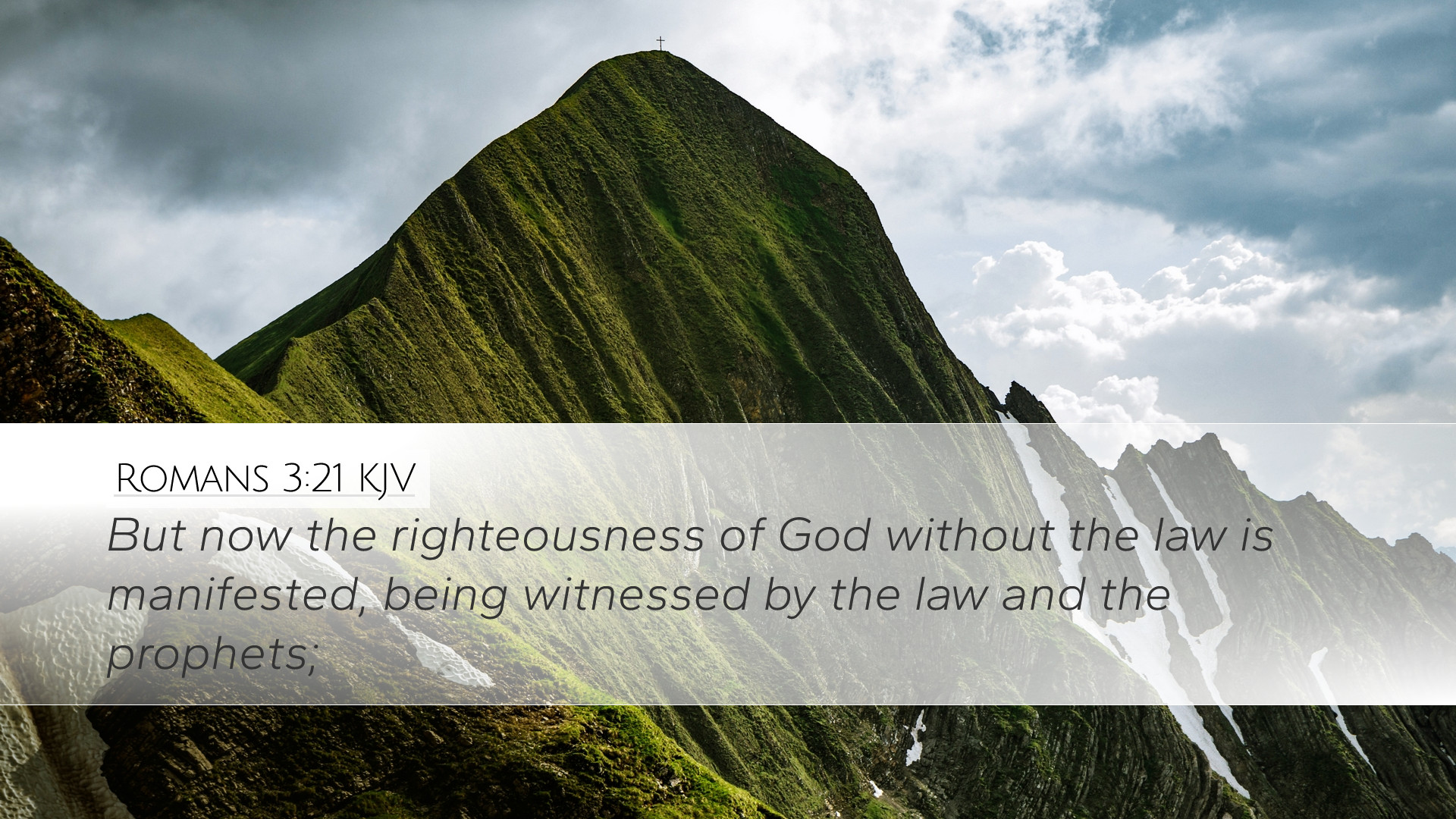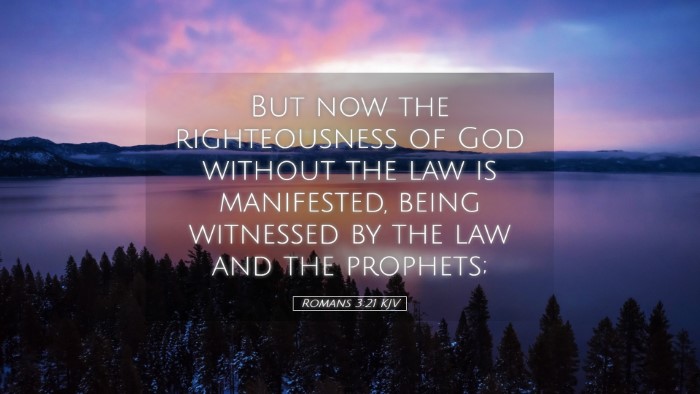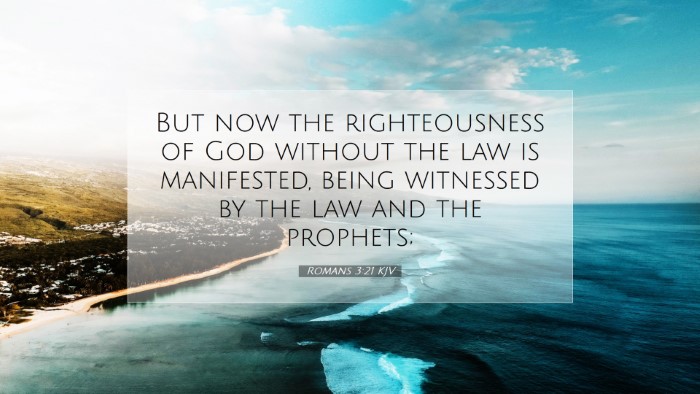Commentary on Romans 3:21
Verse Context: Romans 3:21 states, "But now the righteousness of God apart from the law is revealed, being witnessed by the Law and the Prophets." This verse serves as a pivotal transition in Paul's epistle to the Romans, moving from the discussion of human sinfulness to the revelation of God's righteousness.
Overview
This commentary draws insights from renowned public domain commentaries, including those of Matthew Henry, Albert Barnes, and Adam Clarke. The focus is on the theological significance of this verse, its implications for understanding justification, and the broader narrative of Scripture.
The Righteousness of God
Matthew Henry emphasizes that "the righteousness of God" is not merely an attribute but a salvific act. He notes that God's righteousness is now revealed in a way that is distinct from the Mosaic Law, signifying a new covenant in which faith in Christ surpasses the regulations of the law. This righteousness is grounded in God’s character and is manifest in the person of Christ, fulfilling the Law and the Prophets.
Albert Barnes elaborates on the phrase "apart from the law," indicating that this signifies a departure from the works of the law as a means of attaining righteousness. He explains that the law served to reveal sin, but righteousness through faith is now demonstrated in the person of Jesus Christ. This concept underscores the fundamental shift from law to grace, and from human effort to divine provision.
Adam Clarke points out that the 'now' in this verse signals a significant moment in divine revelation. He interprets this as the culmination of God's plan where righteousness is extended to all humanity, not just Israel. Clarke further reasons that this righteousness is "witnessed by the Law and the Prophets," suggesting continuity between the Old and New Testaments, where the entire biblical narrative points towards Christ.
Theological Implications
Understanding Romans 3:21 requires a grasp of key theological concepts such as justification, grace, and faith. The declaration of God’s righteousness apart from the law has profound implications:
- Justification by Faith: Both Henry and Barnes agree that this verse lays the foundation for Paul's doctrine of justification, which asserts that believers are declared righteous through faith alone, not through works. This is pivotal for Reformation theology.
- Universal Access to Righteousness: Clarke’s insights highlight the universal nature of this righteousness. It removes barriers, showing that salvation is accessible not only to Jews but to all Gentiles, thus redefining the community of faith.
- Foundation for Christian Living: Understanding righteousness apart from the law reshapes moral conduct. It aligns Christians' lives with grace rather than the binding constraints of the law, encouraging a response to God’s love through a transformed life.
Law and Prophets
This verse references how the Law and the Prophets testify to this righteousness. Henry asserts that the Old Testament prophets foretold the coming of Christ, who would fulfill the law’s requirements and provide believers a new way of relating to God.
Barnes adds that the law itself was a shadow pointing toward Christ, serving as a tutor to lead people to the realization of their need for a savior. It emphasizes that while the law reveals the standard of righteousness, it ultimately points to the means by which that righteousness is attained—through faith in Jesus Christ.
Clarke highlights the importance of the prophetic witness, noting that both the law and the prophetic writings of the Old Testament affirmed the gospel of grace that is now fully realized in Jesus. This affirmation serves as a bridge for Jewish believers and reassures Gentile converts that their faith is rooted in a historically rich foundation.
Application for Today
For pastors, students, and theologians examining Romans 3:21, several applications arise:
- Faith in Christ Alone: This verse beckons believers to place their complete trust in Christ, recognizing that human efforts cannot obtain righteousness.
- Understanding God’s Character: Reflecting on God's righteousness invites believers to appreciate the holiness and justice of God, culminating in His merciful provision through Christ.
- Engaging with the Old Testament: The continuity between the Testaments reveals the richness of biblical theology, where the entirety of Scripture unveils the character and plan of God for salvation.
Conclusion
Romans 3:21 is a verse rich with theological depth, encapsulating the essence of the gospel. It marks a fundamental turning point in understanding God’s plan for redemption, and without it, the message of grace in the New Testament can be misunderstood. The insights provided by these commentaries serve to illuminate our comprehension of righteousness, faith, and God’s unchanging character, challenging us to respond to His great love through faith and obedience.


